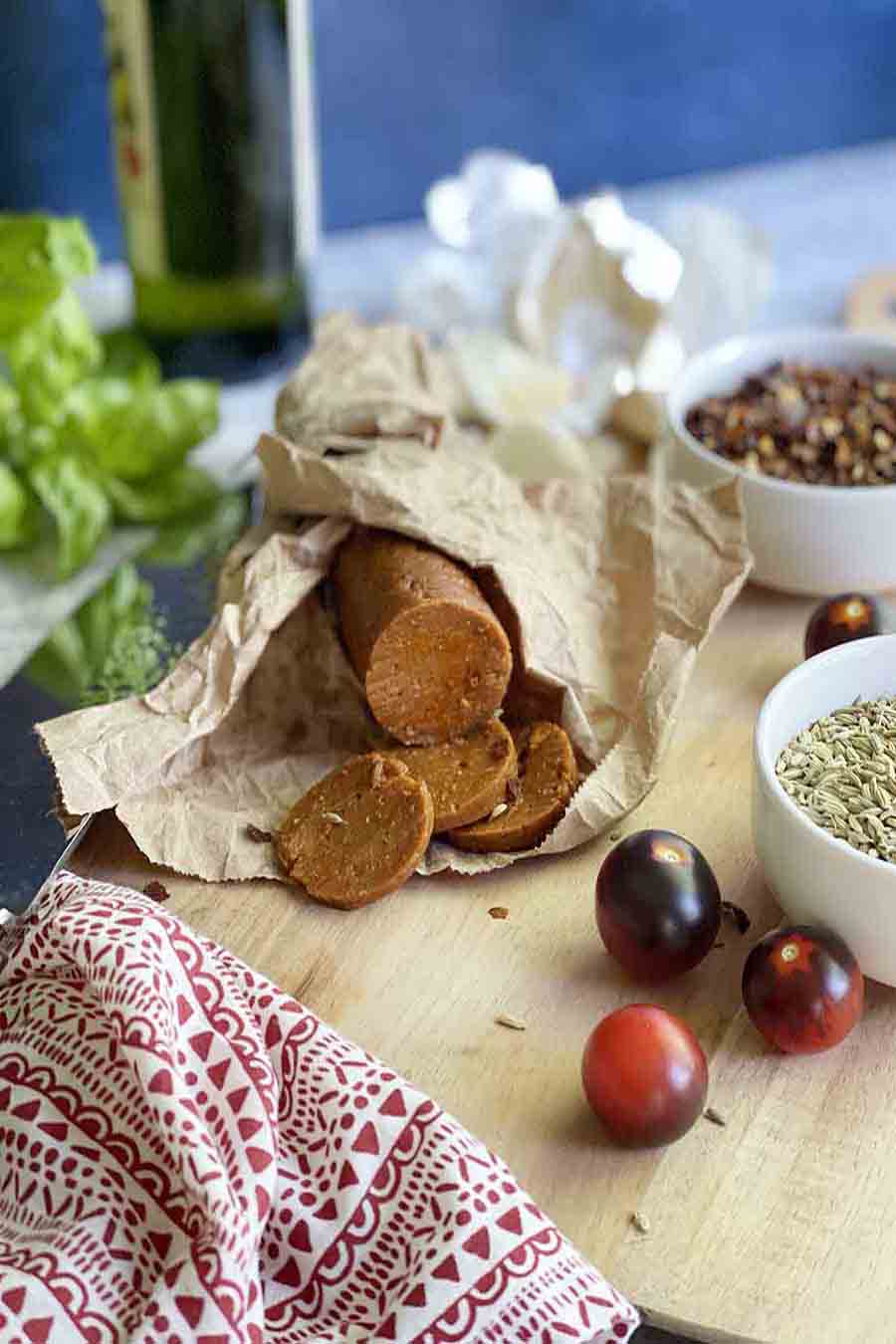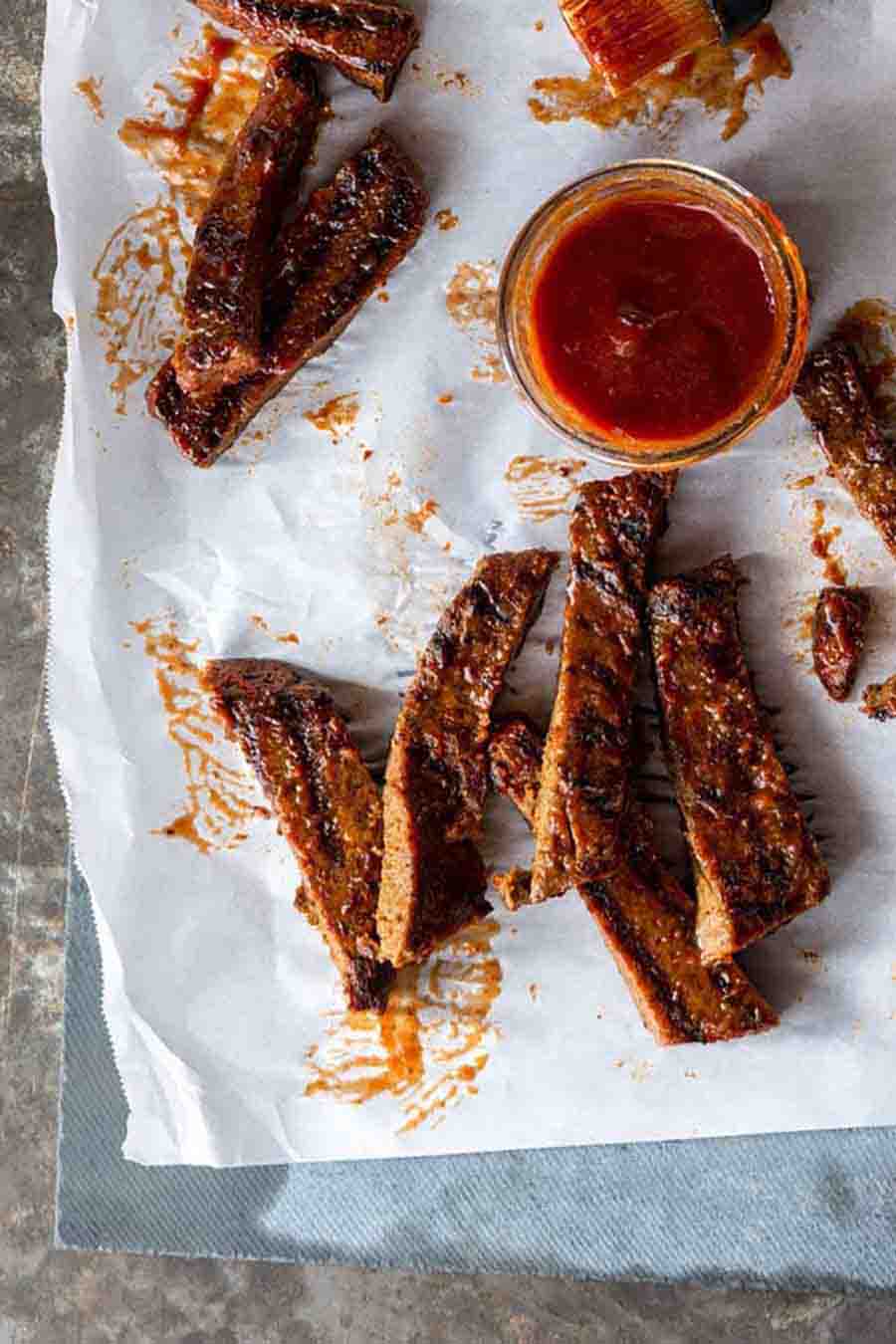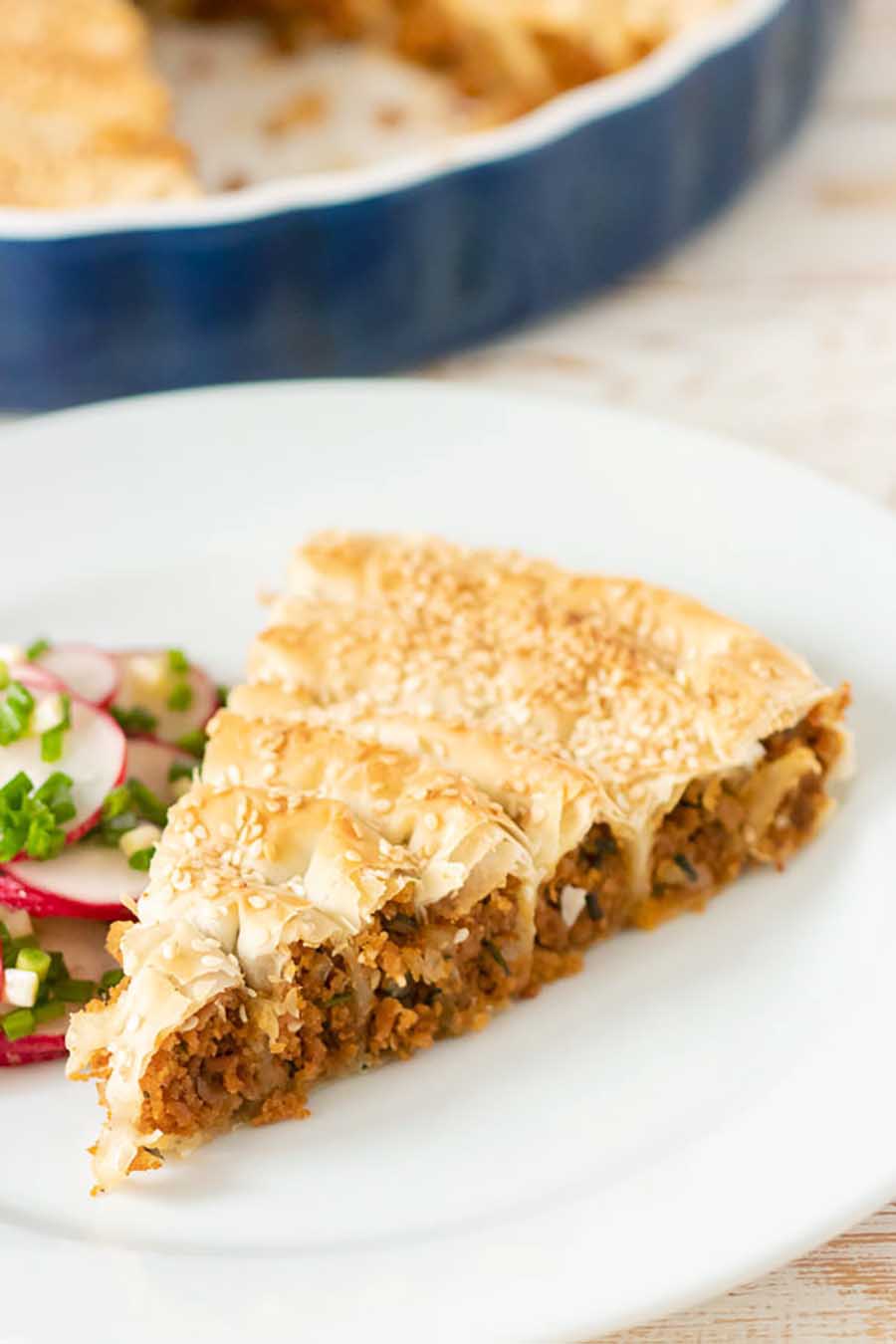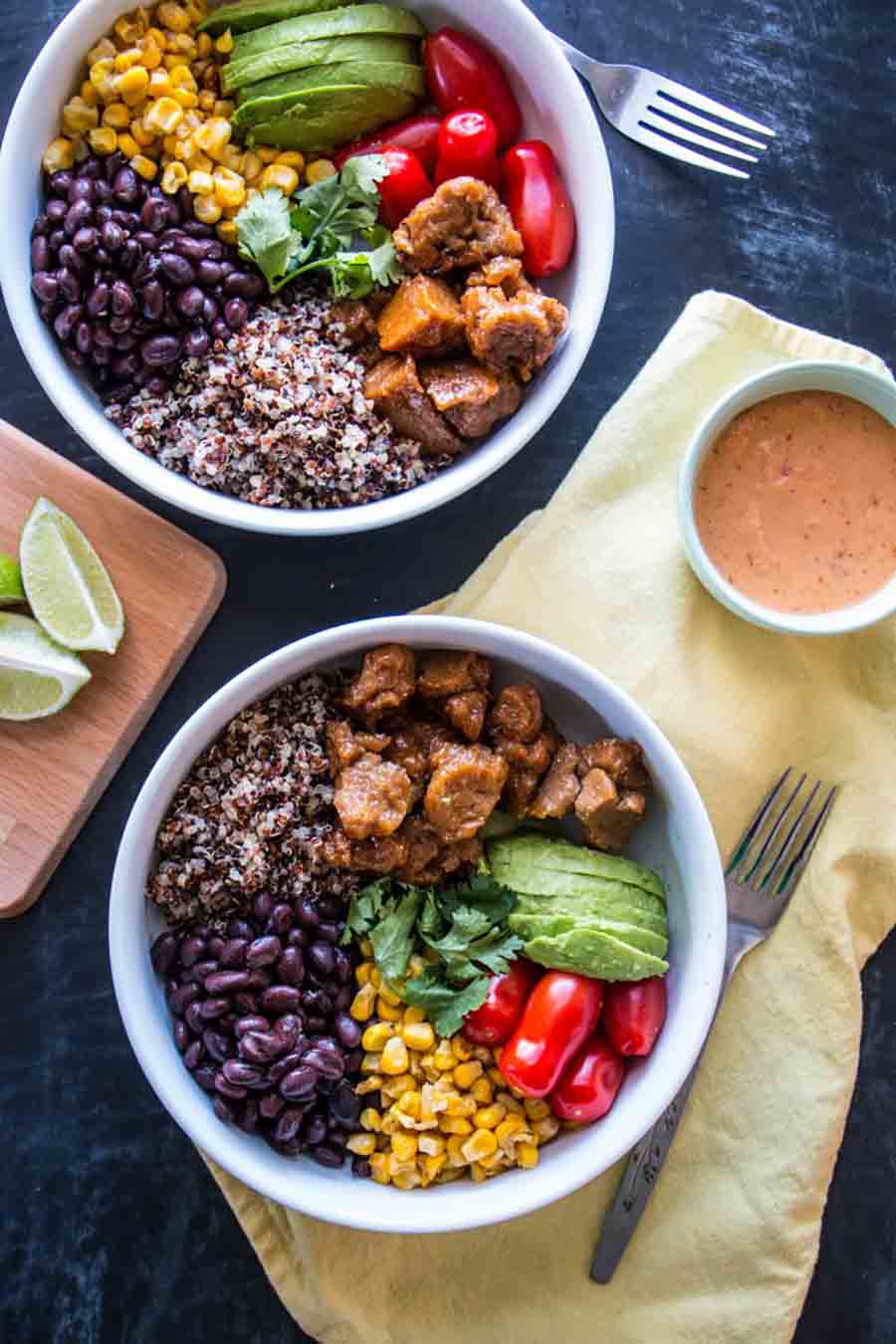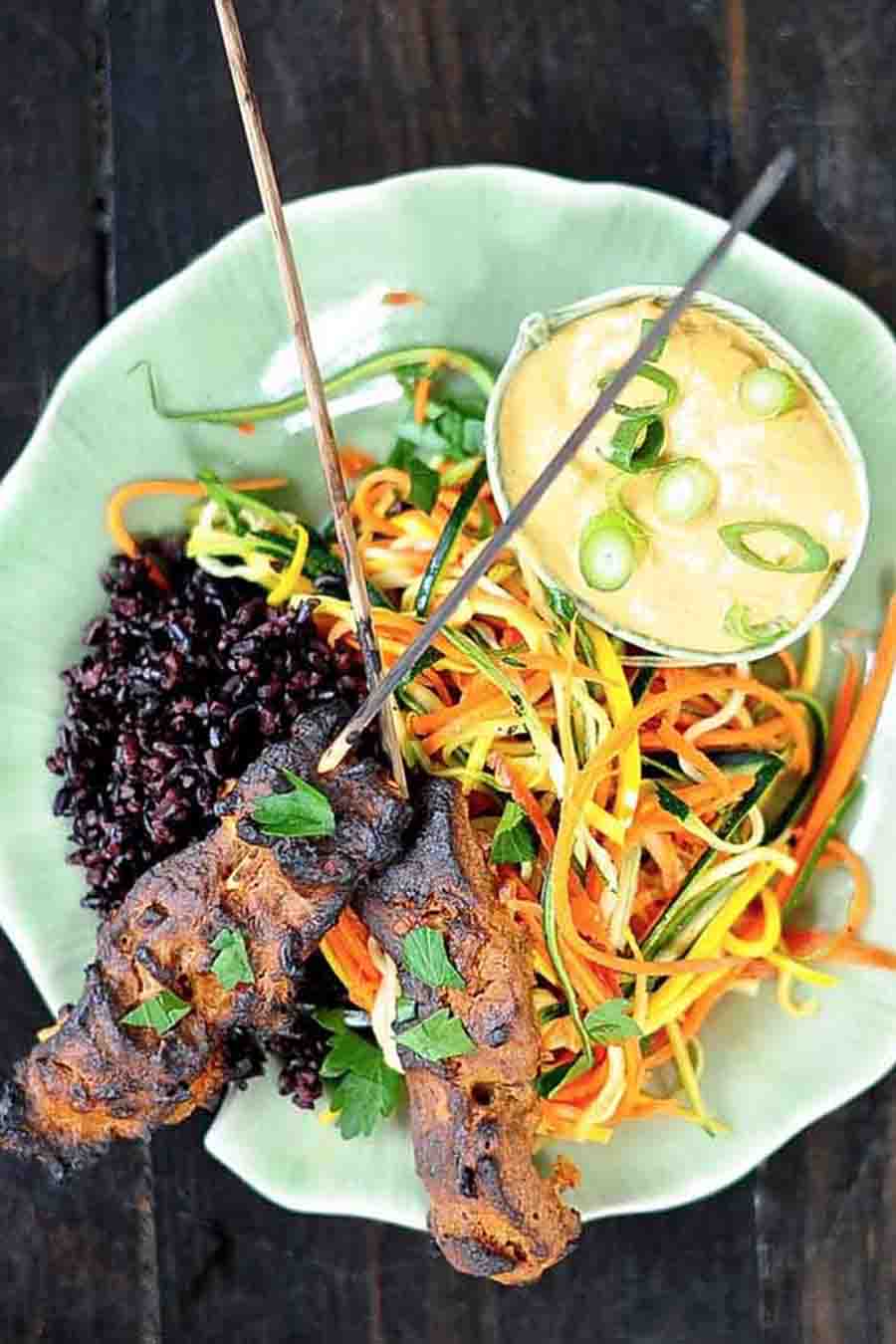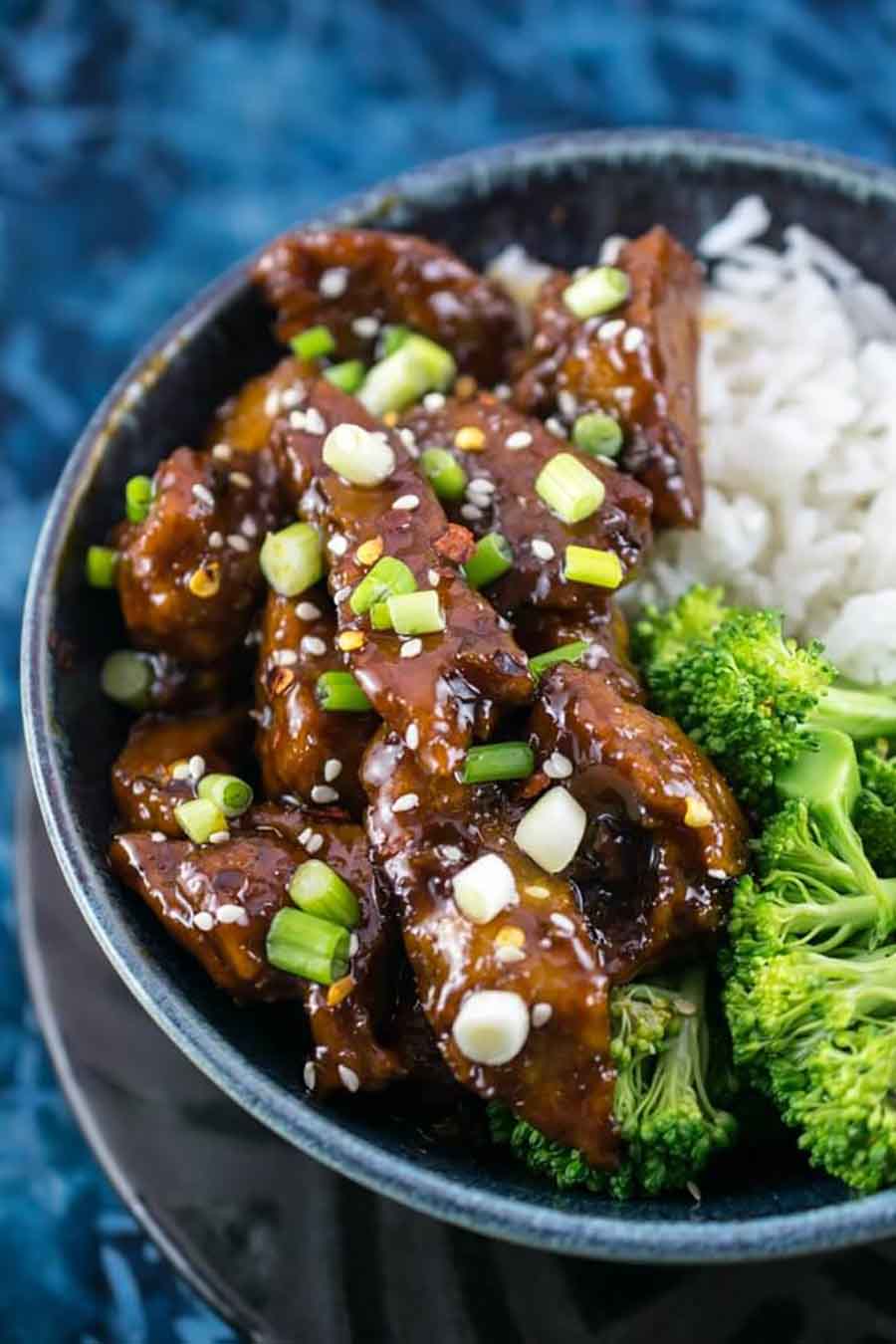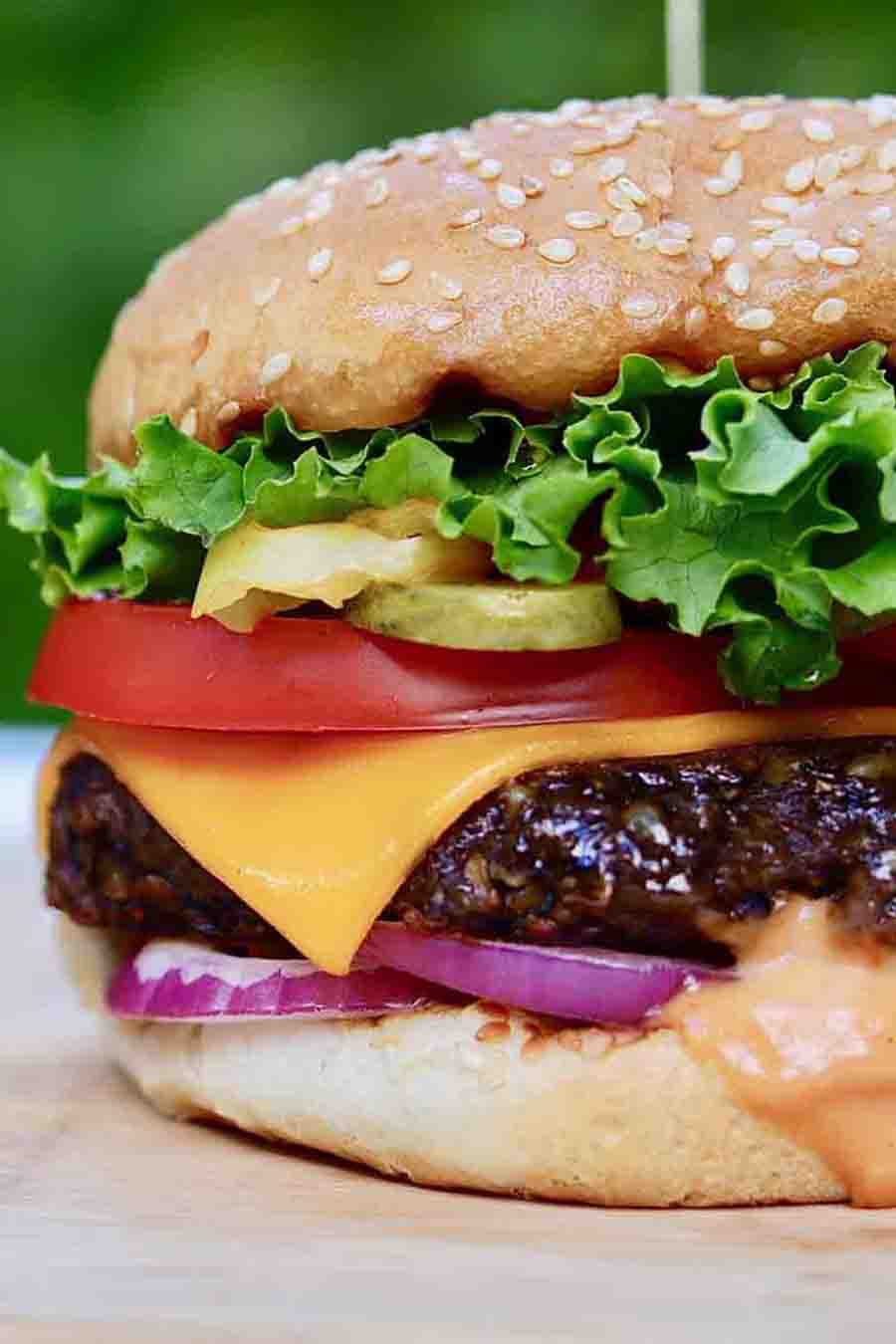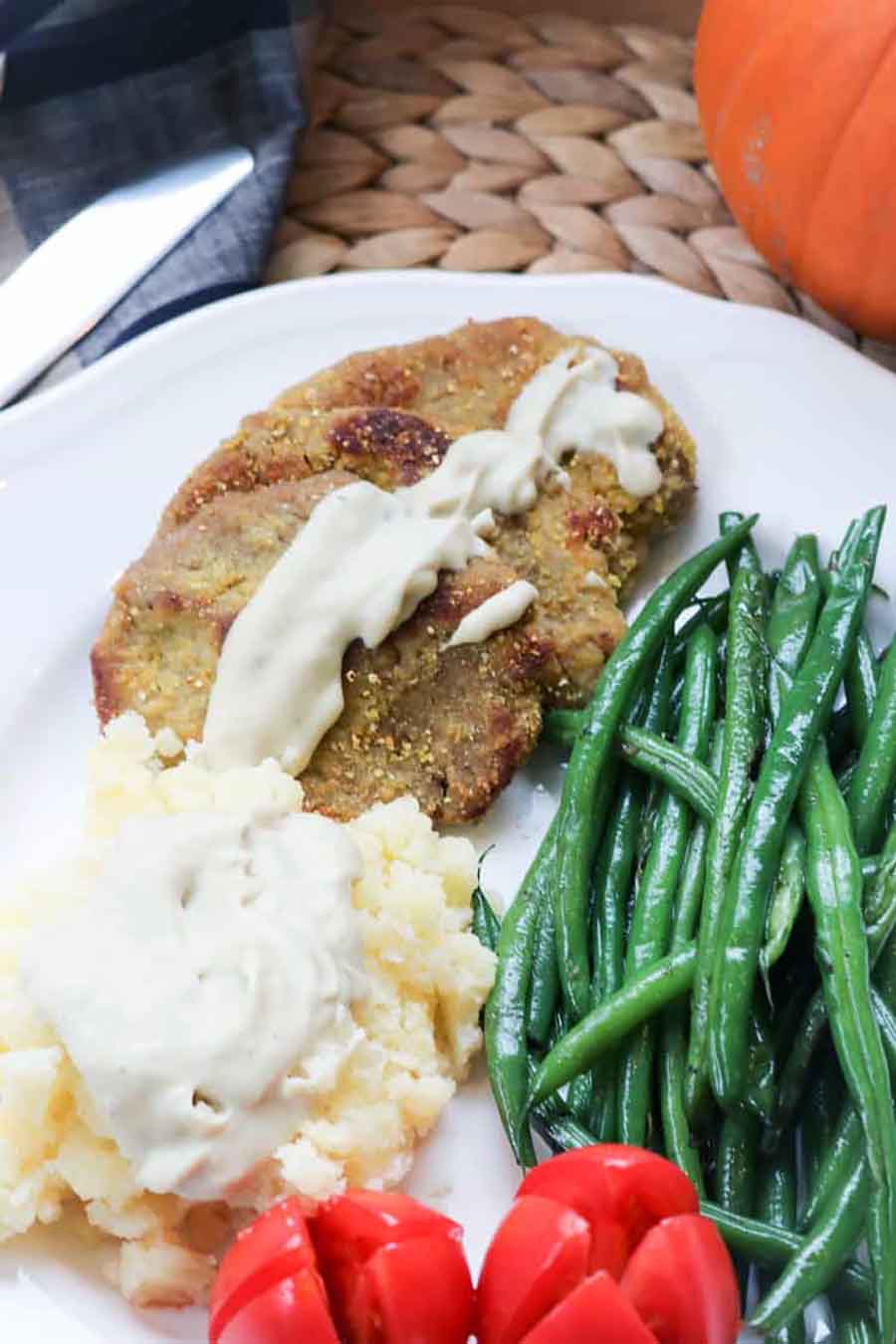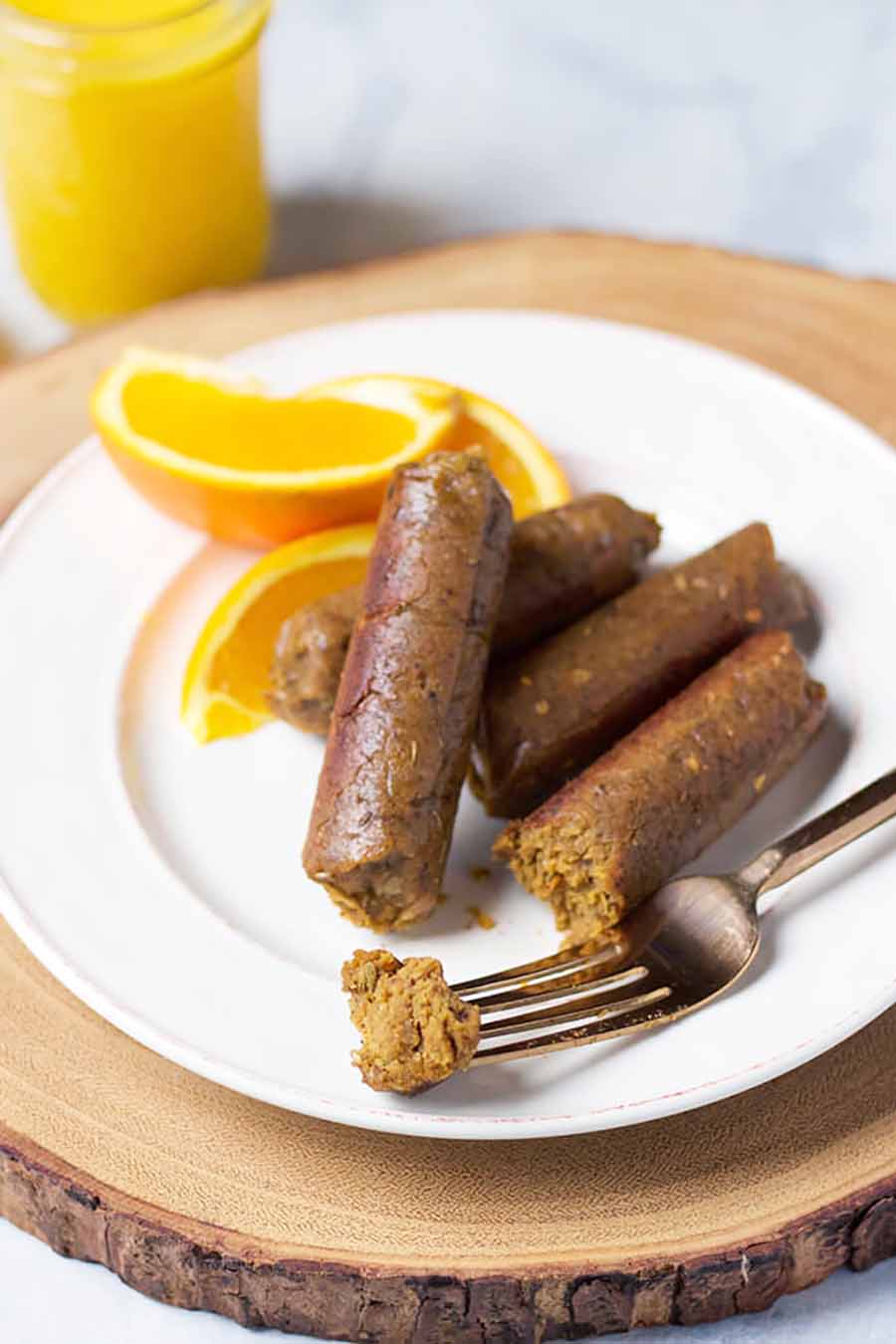Home / Guides / Food & Drink Guides / Plant Proteins / Seitan
Seitan
This wonderfully versatile food can make all types of delicious vegan meals.
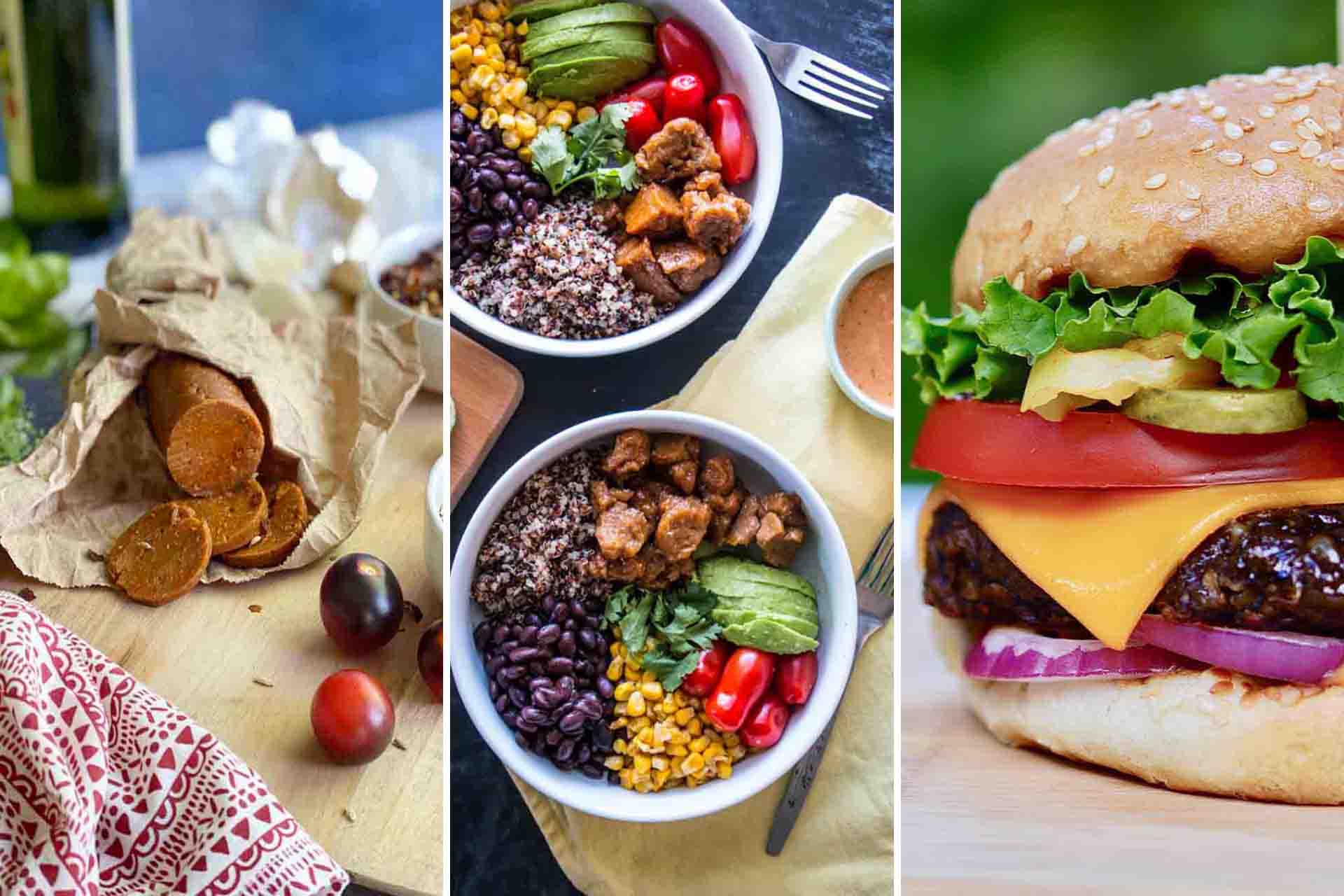
Published: July 2015
Last Update: February 2023
Reading Time: 5 minutes
A fan-favorite plant protein
Seitan (pronounced SAY-TAN) has fans all over. Vegans love its chewy, toothy texture and ability to mimic almost any animal-based meat. We also love that it's packed with plant protein.
If you're unfamiliar with cooking using seitan, you're in the right place.
First, I'll cover the basics and answer a few frequently asked questions. Then it's time to go shopping. There's a brand guide to help point you in the right direction once you get to the store.
Next, you'll find cooking basics along with vegan seitan recipes to try. Finally, I've included a few video tutorials.
Let's dig in.
QUICK NAVIGATION
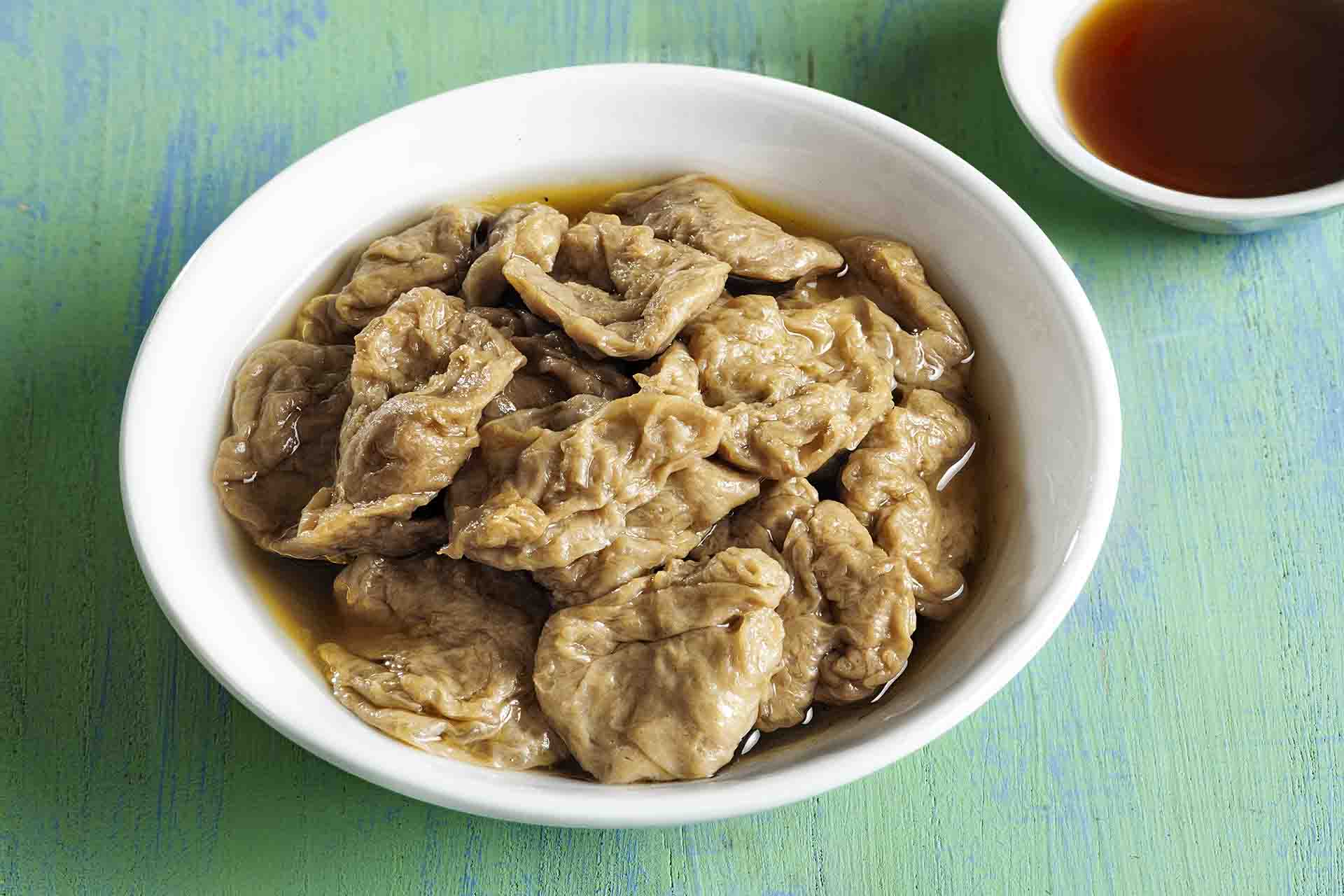
Prepared seitan / Source
Basics / Shopping / Recipes / Video Tutorials
1. Basics
If you're new to seitan, start here.
Origins
Seitan originated in China and Japan more than 1,000 years ago.
Traditionally prepared by Zen Buddhists, it was used as a substitute for meat or fish. It comes from the Japanese words “sei,” meaning “to be, become, made of,” and “tan,” as in tanpaku, which means “proteins.”
Freely translated, it means: “made of proteins."
It's made from gluten
Seitan is the protein part of the wheat flour, also known as gluten or wheat gluten.
It comes from washing wheat flour dough with water to remove all the starch granules, leaving a sticky, insoluble gluten mass. The spices and flavorings come next, then cooked.
Trust me; it tastes much better than it sounds.
What does seitan taste like?
By itself, seitan has little to no flavor at all.
It absorbs flavorings extraordinarily well and has a toothsome, chewy texture similar to animal meat. This toothy texture makes it an excellent choice for people looking for alternatives to the familiar foods of their pre-vegan days.

Grocery carts at the market / Source
Basics / Shopping / Recipes / Video Tutorials
2. Shopping guide
Here’s what you need to know before you head to the store.
Finding seitan in stores
Since seitan comes in infinite products, you'll find it all over grocery stores.
Generally speaking, you'll look in refrigerated sections near or around the produce section for the premade unseasoned seitan. If you decide to try making seitan yourself, the baking aisle is where you'll probably find wheat gluten.
As an ingredient, seitan-based plant meats come both fresh and frozen.
And don't forget, your local Asian market will likely carry various options.
Vegan seitan brands
Supplies you'll need to make seitan at home
If you want to make your own, look for powdered gluten — vital wheat gluten or gluten flour— and it’s essential to get the right product. You want to look for vital wheat gluten that contains 75% or more protein.
Another essential ingredient in homemade versions is stock. Cooking in stock is a great way to build flavor in an otherwise flavorless product. I will use homemade stock whenever I can, but pre-made or made from bouillon is fine too. I use and love the flavor I achieve with the no-chicken style bouillon from Better Than Bouillon. <- That's an affiliate link, and I earn from qualifying purchases. See my disclosure policy for more.
Since every recipe is different, check the ingredients list before heading to the store.
Basics / Shopping / Recipes / Video Tutorials
3. Vegan seitan recipes
Ready for cooking inspiration? These recipes will surely satisfy you.
Frequently asked questions
Before the recipes, let's get the answers to the most commonly asked questions about seitan.
Recipes to try
- Vegan Pepperoni
Your Daily Vegan
- BBQ Ribs
Veganosity
- Vegan Bosnian Burek with Ground Seitan
Slavic Vegan
- Southwest Buddha Bowl with Agave Lime Seitan
The Nut-Free Vegan
- Vegan Satay with Spicy Peanut Sauce
Sunnyside Hanne
- Mongolian Seitan "Beef"
Yup, It's Vegan
- Grillable Vegan Burgers
The Cheeky Chickpea
- Tender Vegan Steak
Vegan Blueberry
- Maple Breakfast Sausage
Karissa's Vegan Kitchen
Basics / Shopping / Recipes / Video Tutorials
4. Video tutorials
Because sometimes it’s easier to watch a video.
See how it's done
Unfortunately, I could never link to all the creative videos or tutorials on this topic. I chose these because I’ve tried each, resulting in awesome-tasting food.

Truth in advertising
I am committed to providing accurate information to the vegan community. Meticulously researched, the topic explored in this guide contains the information available at the time of publishing.
I don’t just say it; I source it too.
Please contact me if you find incorrect data.

